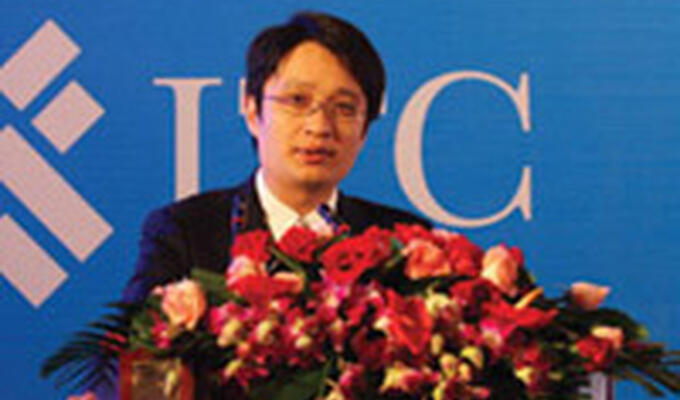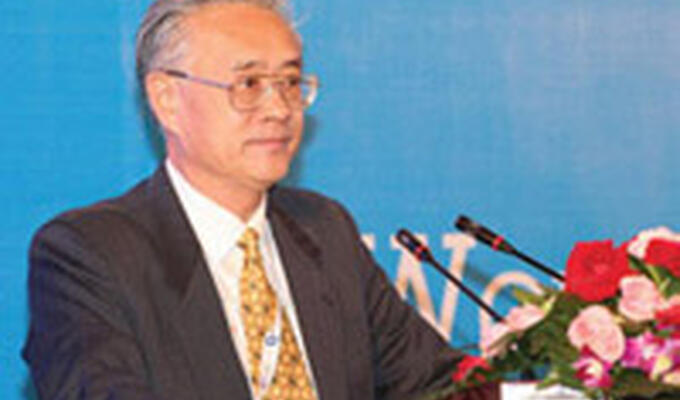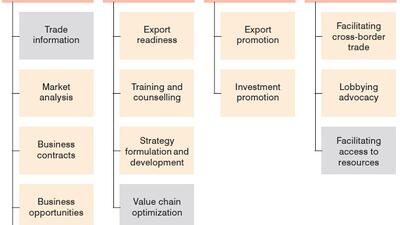


Thinking ahead & planning for tomorrow: Putting information and communications technologies to work
The role of innovation and the use of information and communications technology (ICT) to further the Aid for Trade agenda was one of the key themes explored at the World Export Development Forum (WEDF), held in Chongqing, China in September 2010.
Looking to the future of world trade after the global financial crisis, ICTs will play an important role in stimulating growth by repositioning businesses to take advantage of new development opportunities and access to potentially large markets.
Through innovation and the increased utilization of ICT, access to reliable and affordable Internet connections has assumed paramount importance in fostering the growth of e-commerce. It has also provided efficient telecommunications services, including to small- and medium-sized enterprises (SMEs). Accordingly, mobilizing ICT infrastructure investment – through means such as public-private partnerships – is vital. As the experiences of Huawei Technologies, Digicel Jamaica and the Jamaican Government shared at WEDF show, the rapid advances in mobile technologies and the widespread adoption of mobile telephony are empowering many low-income groups and unlocking entrepreneurial opportunities.
ICT as a major driver of economic growth
Senator Marlene Malahoo Forte, Minister of State, Jamaica’s Ministry of Foreign Affairs and Foreign Trade, highlighted that ICT is a major driver of economic growth as witnessed through the global spread of mobile technology and Internet subscriptions. The senator stated that given the substantial cost of developing ICT, international organizations should assist countries with technical and financial support.
‘SMEs need to explore ways that ICT can enhance trade with technical assistance development partners. Governments should focus on policies and strategies to increase the competitiveness of local firms, providing incentives for SMEs to address the needs of consumers in terms of real-time information and speedy delivery,’ said Senator Forte.
In pursuit of the Millennium Development Goals (MDGs), technology is a marker of development. The Internet provides the means of rapidly replicating and sharing best practices and self-help models across the world. Mobile services are delivering some of the greatest economic benefits, with mobile financial services bringing in remittances, a vital foreign exchange earner.
The Jamaican Government has realized the importance of the ICT sector and has created an enabling environment that brings ICTs, specifically cellular telephony and the Internet, to nearly 55% of Jamaica’s population, compared to just 23% in the rest of the Caribbean. Acting as an enabler, the government used liberalization as the principal mechanism while carefully managing the issue of licenses. In 2007 a draft telecommunications policy was introduced, attracting two leading Chinese
infrastructure providers, ZTE and Huawei. There has been dramatic growth, especially in mobile telephony, which is now ubiquitous, with broadband and competition expected to reduce the cost of telecom services and stimulate other areas of the economy.
Senator Forte also highlighted that the private sector has strategically positioned itself in the global supply chain as a convenient near-shore business service, raising the profile of outsourced services for the private sector. For example, Affiliated Computer Services, the largest outsourcing centre in the Caribbean, has produced over 55,000 outsourcing jobs worldwide and over 4,000 jobs in Jamaica. The company has extolled the vital role of liberalization policies in its success.
The role of government policy
There is no doubt that technology will drive future development gains in all economies and impact the evolution of world trade. ICT in particular is expected to bring about more favourable trading environments, attracting foreign direct investment to accelerate development.
ICT has already and will continue to enhance access to information by companies, create greater efficiency and open doors to new
opportunity, but public-sector ICT strategies have an important role to play. Governments should therefore undertake strategic enabling policies to facilitate the necessary infrastructure developments. Development partnerships forged with governments must provide for policies and strategies that increase the competitiveness of local firms, providing incentives for SMEs to meet market demand using better take-up of ICT.
CASE STUDY
Digicel Jamaica creates growth through investment in telecommunications
‘Broadband directly improves the lives of individuals by providing the tools for self-empowerment,’ asserted Mr. Mark Linehan, CEO of Digicel Telecommunications Corporation Jamaica.
According to Mr. Linehan, for a country like Jamaica that relies heavily on foreign trade and investment and until recently, had a very low Internet penetration rate, increased broadband Internet access is expected to serve as a catalyst for further economic growth. Just as access to mobile telephony has changed and influenced the way people conduct business, access to broadband Internet will open up a new world of possibilities by enabling online sales, achieving broader revenue streams, improving cost control and increasing sales while accessing more suppliers.
In August 2010, Digicel Jamaica launched its 4G broadband service with the vision to make broadband Internet across Jamaica superfast, accessible, affordable and reliable for the local consumer base. The company has made foreign direct investments in Jamaica of US$ 22.7 million in WiMAX technology in addition to existing investments of over US$ 850 million in mobile network technology. Covering 60% of the population, Digicel’s high speed Internet access capitalizes on innovative technology from its partner, ZTE Corporation (China).
CASE STUDY
ZTE Corporation focuses on South–South trade
‘ICT has improved access to information by companies and has enhanced efficiency, contributing to business growth and employment generation, with the potential for countries to become knowledge centres linked in to the global supply chains of multiple industries,’ said the Vice President of ZTE Corporation (China), Mr. Eric Zhang.
A leading global provider of telecom equipment and networking solutions and one of the world’s most experienced WiMAX providers, ZTE Corporation’s focus is on South–South trade. The company is strategically focused to be a capital resource provider for telecommunications infrastructure and equipment worldwide, especially in Latin America and the
Caribbean.
CASE STUDY
Huawei Technology works to bridge the digital divide in Africa
Huawei is a leading global telecommunications solutions provider with long-term partnerships with operators. Over the past decade the company has invested more than US$ 1.5 billion in the development of the African telecom industry, making it one of the top three telecommunications equipment providers on the continent today. The company has established strategic partnerships with major African telecom operators and aims to work with its African partners to bridge the digital divide and enrich the lives of the African people through communications.
Huawei has more than 4,000 employees in Africa, 60% of them locally recruited. This has laid the groundwork for a collaborative partnership and shared technical expertise with African carriers. The company has also helped to create more than 10,000 jobs with approximately 1,000 local sub-contractors, and 12,000 trainees benefit annually from the services of six training centres across Africa.
In 2009, Huawei invested US$ 20 million to expand its training centre in Egypt in order to provide programmes on the latest technologies, including optical networks, broadband and intelligent networks. Technical contributions in Nigeria, Kenya, Egypt and Tunisia have upgraded the skills of local engineers. Scholarship programmes support outstanding engineering students in telecommunications disciplines. Local procurement continues to expand.





